
There have been previous years here at The Metal Pigeon where the year end list was an agonizing, much deliberated upon process, but none like this year. Simply put, the sheer quality of some of these 2019 releases made trying to decide which of them I loved the most extremely difficult. This best albums list was slowly under construction as the year went along, with new contenders for the top spot seemingly popping up every month or so. I guess what really surprised me about the final result was in seeing just who wasn’t there, especially in a year where veteran bands were putting out notable new records. If there’s a theme to 2019, it’s the year of the upstart, the newcomers and relatively unknown bands that wound up making the biggest impact on me. Not only is that something to cherish because of what it says about the health of the metal scene overall, but for me personally it makes writing The Metal Pigeon and co-hosting the MSRcast podcast more gratifying, and just makes being a metal fan more fun too. Thanks to everyone for sticking around to read my words for another year!
1. Dialith – Extinction Six:

The subgenre with the most difficult learning curve and the easiest potential for a band to derail entirely is that of symphonic metal —- in which even its pioneering architects in Therion and Nightwish occasionally misstep or just flat out faceplant themselves in the dirt. Arguably, artistically successful symphonic metal requires gifted musicians, talented and often trained vocalists, and a songwriter that can weave together these disparate elements into something grand, epic, and powerful. It’s such a problematic subgenre that over the years it had gotten stale primarily because most of its artists followed a proven template time and time again. As a result listeners began to feel as though most bands were indistinguishable from one another, that they had heard the same record over and over, and the idea of classic symphonic metal (that is, the stuff not blended with extreme elements ala Fleshgod Apocalypse) began to be the object of scorn and ridicule. Its somewhat ironic then that the band that might be the turnaround for the entire subgenre is an unsigned band on their self-released debut album, who hail not from Europe or Scandinavia, but from Danbury, Connecticut. With Extinction Six, Dialith reintroduced actual metal to the idea of symphonic metal, creating a sound that is at once as shimmeringly ethereal as their obvious influences, but also grounded and gritty, at times full of seething aggression.
They accomplish this by incorporating a love of aggressive melodic death metal throughout their songwriting, thrashy and dense in the guitars, with a punishing rhythm section holding things together. Eschewing the standard rhythmic chug heard in most symphonic metal bands, guitarist Alasdair Mackie unleashes a barrage of crunchy, tightly packed, galloping melodic riffs that constantly shapeshift, slow down, speed up, and veer hard into wild power metallish passages. Directly propelling this attack is drummer extraordinaire and dark horse mvp candidate of the album Cullen Mitchell, whose incredibly creative patterns and fills bring a bracing urgency to these songs. Vocalist Krista Sion turns in the most compelling vocal performance in a symphonic metal record in the past decade, at once haunting and yet earthy, capable of sounding serene, or detached, and even angry from moment to moment. I simply could not stop listening to this record once I was introduced to it, and despite its August release date, it is my most played album of the year. I would listen to it at home, when driving to work, and when wearing headphones at the grocery store, blankly staring at bags of frozen veggies while I wondered how it took until 2019 for anyone to realize that the secret to revitalizing symphonic metal is to worry less about the symphonic bit, and just get more metal with it. That Dialith stumbled upon this truth on their first full length defies logic —- but that its an American band that’s bringing new life to a European born subgenre long declared dead is something I’m thrilled about. If you haven’t figured out by now that the most exciting new metal bands are spilling out of the USA and Canada this last half decade, consider Dialith’s Extinction Six another gloriously loud wake up call.
(Also appears on: The Metal Pigeon’s Best Songs of 2019)
2. Idle Hands – Mana:

This is likely going to be one of those rare times when something on my year end list matches a lot of other publications, probably some high profile ones too. And when it comes to Idle Hand’s gnawingly irresistible debut Mana, that’s the way it should be, because this record is undeniable. You might recall that I was a bit conflicted on this album way back in the summer, even mentioning on an episode of the MSRcast that I found vocalist Gabriel Franco’s grunts and wolfman exultations a little trying. But his songwriting was just so compelling, and cuts like “Give Me To The Night”, “Jackie”, and the glorious “Dragon, Why Do You Cry?” were too addictive to cast aside over a minor gripe. Funnily enough however, I began to learn to love those strange vocal outbursts, now to a point where I can’t imagine the songs without them and you damn well better believe that when I catch the band live in March I’ll be matching Franco grunt for grunt. Idle Hands’ sound is a blend, a Tribulation-esque metallic crunch to the riffs, with the hard rock strut and mystical swagger of The Cult, and the detached gothic sensibility to Franco’s stoic vocal tone that brings to mind Sisters Of Mercy or The Mission. But Mana is more than just the sum of its influences, as Franco’s songwriting style is imbued with a distinctive character, and guitarist Sebastian Silva turns in one of the finest performances of anyone on any album all year. Oh and the other thing that honestly counts for a lot these days —- that when I needed to hear something fun, to perk me up, to lift my mood, Idle Hands’ Mana wasn’t far from my mind or my speakers.
(Also appears on: The Metal Pigeon’s Best Songs of 2019)
3. Aephanemer – Prokopton:

Representing a new spoke on the pinwheel of diversity that is French metal, Aephanemer broke this year in a big way with their sophomore album Prokopton. Unlike the black metal infused artistry of Blut Aus Nord and Alcest, or the raw, vicious speed/power blend of last year’s best albums list maker Elvenstorm, this four piece from Toulouse weave together Gothenburg-ian melodic death metal with classical inspired melodies (and apparently traditional Slavic music too, I’ll take their word for it). Lead guitarist and principal songwriter Martin Hamiche is a veritable fountain of non-stop melodies, most of which sound like they should be played on a violin or cello. Alongside rhythm guitarist/vocalist Marion Bascoul, they weave together the most frenetic yet beautiful guitar wizardry set to urgent, insistent tempos. And they simply don’t stop —- the melodies weave one idea into another without skipping a beat, and segues into ultra-aggressive headbanging riffs come without warning and with maximum impact. Bascoul’s rhythm guitars are fierce and just crunchy enough to stand apart from Hamiche’s decadent, flourish laden performances. But its her vocals that are perhaps her most valuable asset, brutal and snarling, shaded with a little black metal grimness, and crisply enunciated. The relentless pace of this album is hyper-aggressive, a breathless flurry of consistently up-up-up-tempo dizziness (ever have those dreams where you’re driving uncontrollably fast and fly off a highway overpass, tracks like “Bloodline” should be their soundtrack). I was stunned outright when I first heard Prokopton all those months ago, and still feel the same way listening to it now —- this was not only a bold re-imagining of what melodic death metal could be, but perhaps the most high-energy album to ever grace a Metal Pigeon year end list.
4. Thormesis – The Sixth:

Though they’ve been around for a decade plus, Germany’s Thormesis kinda languished in the dark for their first five albums (that they were sung in their native language probably didn’t help much). Cue The Sixth, where the band scaled back their pagan folk roots, incorporated more post-metal influences (particularly with moodier passages built on vividly ambient clean guitar figures), but most importantly, they brought some old school rock/metal sensibility to the affair. Tremolo guitars rarely dominate for long on these songs, often veering into (no other way to describe it other than…) rockin’ passages where you’re locked in with meaty, hooky riff progressions. The lead guitar flying over the top throughout is loose and wild with a hard rock sensibility, often going for maximum dramatic impact with inspired melodic motifs. And melody is where Thormesis reign supreme, because the fundamental appeal of this album is their ability to tightly control and deploy blasts of blistering, furious black metal within highly melodic, very accessible songwriting structures. The result was an album of songs that didn’t feel oppressive, didn’t require a certain kind of mood or external ambiance in order to really “get into it”. On the contrary, the band would often paint complex musical moments where you’d detect shades of melancholy and optimism simultaneously, such as in the ending sequence of “Their Morbid Drunken Ways”. Which meant that I listened to this album when I was in need of something angry, but also played it when I was perfectly calm and it was bright and sunny out. For someone like me who is finicky about stuff like being in the right mood to fully appreciate this or that album —- The Sixth was an anomaly, a kind of meditative space where I could be encompassed by its strange mix of disparate musical elements and figure myself out.
5. Swallow The Sun – When A Shadow Is Forced Into The Light:

This was not an easy album to listen to, even though I feel its Swallow The Sun’s strongest work to date in a career full of excellent moments. Enough has been written and spoken both on this blog and random episodes of MSRcast about the backstory behind this album, perhaps too much, but its not like you can ignore it particularly when these songs are the channeling of grief by the band’s chief songwriter. Its a sad, somber record that can weigh on you if you’re susceptible enough, and there were times when I simply didn’t want to listen to something this damned heavy… as in burden of grief heavy. In April I saw the band perform live on their tour with Children of Bodom, their first American trek with Juha Raivio in tow in years. He’d understandably skipped the past few tours, but there he was directly in front of me, playing some of these songs that he’d written to process whatever turmoil it was he was going through, and it was surreal to watch someone exorcising that in front of you. Getting to see that in person made me realize just how much of a triumph When A Shadow… actually is, because rather than rely on the old school Swallow The Sun formula, Raivio borrowed from the gothic splendor of the Trees of Eternity record to rejuvenate the band’s sound. This yielded aching melancholy through bittersweet melodies, a lushness through layered vocals from excellent performances by Mikko Kotamäki and keyboardist Jaani Peuhu, and allowed Raivio to incorporate empty space as a texture more than ever before. The overall effect was meditative, with songs that moved at a stately, often wandering pace, all working to support the evocative lyrical imagery of fire and shadow, of solitary temples, and expansive lakes under starlit skies. An uncomfortable listen at times, but one of the most compelling that I’ve ever experienced as a metal fan, full stop.
(Also appears on: The Metal Pigeon’s Best Songs of 2019)
6. Insomnium – Heart Like A Grave:

In any other year, Insomnium’s emotionally wrought Heart Like A Grave could have been at the top of this list, and it’s a testament to the aforementioned abundance of awesome releases that there are five others ahead of it here. Some may feel that the restrained, more subdued nature of some of these songs arriving in the wake of the brutal, blistering, black metal injected Winter’s Gate was too much of a deviation for their liking, but that’s precisely why I feel so strongly about it as a fan. The band ran out of some of their creative magic on Shadows Of A Dying Sun in 2014, and the step towards a more extreme direction on Winter’s Gate helped them grab some distance from their “classic” sound. Returning to it now, the band displayed some renewed vigor, helped along by fresh songwriting inspiration by dipping deeper than ever before into the well of Finnish melodic melancholy by the way of Sentenced and Amorphis. The result was an album expressly written with an ear towards guitar and vocal melodies, with purely rhythmic riffs being secondary in the equation, at times even kept to a supporting role as on “Pale Morning Star”. On songs like “Valediction” and “Heart Like A Grave”, the band broaden the role of clean vocal melodies like never before, with Ville Friman and newcomer guitarist Jani Liimatainen carrying entire passages with their voices. Lyrically, a bleak, despairing streak coursed through these songs that was particularly downcast even for Insomnium. There were streaks of optimism firing through albums like One For Sorrow and Shadows, but not here, with themes of hopelessness and inner despair set against the backdrop of a fraying outside world. That they set these dark themes against some of the most achingly poignant melodies in a way that makes them heartbreakingly bittersweet is central to Insomnium’s brilliance and the emotional reach of Finnish melo-death.
7. Månegarm – Fornaldarsagor:

Earlier in the year, Swedish folk veterans Månegarm released their strongest record in a decade with Fornaldarsagor, one that is also arguably the most satisfyingly fun of their entire two decades long catalog. Still incorporating the broiling black metal foundation that’s been the broth to their particular recipe of folk metal phở, the Swedes stumbled upon a batch of incredibly hooky material for this record, helped along by leaning hard on the warm folky elements that we’ve gotten on albums past in fits and starts. Here they blanket the proceedings almost entirely, and as a result the album is a lot more mid-tempoed than you’d expect from a band built on black metal foundations. That’s not a bad thing though, because these are melodies that are incredibly endearing, not quite sugary, but possessed with enough sweetness to be a bright, uplifting counterpoint to all the aggression. Adrenaline ratcheting cuts like “Sveablotet” and “Hervors arv” were set to racing tempos, ringing tremolo guitars as well as a dense, melo-death riff battery that anchored everything with a powerful rhythm presence. But they were both spliced open with explosions of folk melody, yielding to its tempo needs and abrupt transitions. On the album highlight “Ett sista farval”, they were aided by gorgeous lead vocals from Ellinor Videfors in a duet with longtime Manegarm vocalist Erik Grawsiö —- their combined clean vocal combo resulting in one of the most poignant folk metal tracks that I can remember in years. Though the folk metal revitalization is taking a slower, more steady path than power metal’s recent resurgence, it’s comforting to see old hands like Vintersorg, and now Manegarm come up big as of late with stellar new albums. The genre was in need of a refocusing on its roots before it was handed off to younger, newer bands —- thankfully, Manegarm are doing their part.
8. Sabaton – The Great War (The History Edition):

Sabaton have had records on my year end lists before, so this shouldn’t be a surprise —- however they’ve not been on all of them. Only Carolus Rex and Heroes have made it on, with The Last Stand never even making my final nominees list. I say that to emphasize that even though I do love this band, I’m not blind to their faults and tendencies, and that being said, there’s plenty of reasons why Sabaton made the cut this time as well with an album that is arguably their strongest since the aforementioned Carolus Rex. You might have noticed above that I specified the History Edition of The Great War, and while I don’t believe that merely the presence of the historical narrations via a talented British (?) voice actor made all the difference between this album appearing on this list or not, I do believe that it is the definitive version of the album that all Sabaton fans owe it to themselves to check out. But indeed, The Great War is here because of its songs, with cuts like “Seven Pillars Of Wisdom”, “The Red Baron” and “Great War” among the band’s very best compositions. The band took their time with this record, with the gap between this and 2016’s problematic The Last Stand being the longest in between releases they’d ever taken. That extra year allowed for time to focus on working on the ambitious World War I theme running throughout this album. And there’s something to be said about Sab using a darker, more somber theme for a change to their songwriting advantage. It forced them to write material that wasn’t all major chords and skyrocketing choruses, but to get heavy, to lean hard on the riffing and pyrotechnics combo of Chris Rorland and Tommy Johansson to get down in the mud and muck. Joakim Broden is of course ageless and still one of the most compelling songwriters in metal, turning in lyrics and performances here that bring these stories to life and make audiences care about them. This was the rebound they needed after The Last Stand saw them dangerously treading water, and I can’t begin to fathom how they’re gonna try to top it.
(Also appears on: The Metal Pigeon’s Best Songs of 2019)
9. Frozen Crown – Crowned In Frost:

Hot on the heels of their impressive debut album last year(!), Italy’s newest power metal phenoms Frozen Crown decided to waste no time and in lieu of extensive touring, worked on crafting a follow-up that would capitalize on the momentum they had built up. Its a smart strategy, and when you have a songwriter with the hook crafting talent of Federico Mondelli, you’re better off unleashing new songs to build up a catalog and get word of mouth by winding up on lists like this one rather than coughing up thousands in rental and fuel costs on the road. Undoubtedly, Frozen Crown will have some pretty sweet tour offers down the road, but for now its enough that they’re focused on their art, because Crowned In Frost makes the case for being the most fun power metal album of the year. Mondelli infuses crackling energy into songs like “Neverending”, “In The Dark”, and “Winterfall” by augmenting soaring power metal melodies with aggressive, melodeath riffing. He’s backed up in this by the dizzying battery of drummer Alberto Mezzanotte, who delivers wildly engaging, creative patterns, never resorting to power metal drumming 101 (check out his absolutely bananas work on “Winterfall” in particular). But it’d all be for naught if they didn’t have a vocalist who didn’t live up to all that excellent musicianship, and Giada Etro in a mere two year span has made a case to be considered one of the best in the genre. Simply put, she’s capable of soaring heights, has a rich, powerful timbre to her voice, and her choices in regards to phrasing, diction, and emphasis are downright impeccable. Mondelli’s melo-death inspired screaming vocals are a welcome addition to the Frozen Crown mix too, giving the band the ability to pull sudden turns off the trad/power route into extreme territory to ratchet up the energy or darken the mood. But what I love the most about this record is that it demonstrates that Mondelli and company seem to understand what fundamentally makes excellent power metal so vital —- that it delivers a sense of grand adventure, of spirit raising triumph, and defiance against the odds. Along with a score of other new bands arriving on the scene, Frozen Crown make me feel really confident about the health and future of the genre going forward.
(Also appears on: The Metal Pigeon’s Best Songs of 2019)
10. Helevorn – Aamamata:

Spain’s Helevorn may not have the big name pedigree of other death-doom metallers like Swallow The Sun, Paradise Lost, or My Dying Bride, but they deserve to be highlighted alongside those titans based on the quality of an album like Aamamata. And for sure those aforementioned bands’ collective influence can be heard through the bleak brutality present here, but what sets Helevorn apart is their unabashed embrace of gothic metal palettes and textures, particularly in the vocal department. On “A Sail To Sanity”, vocalist Josep Brunet balances his throat ripping gutturality with emotive, deep, and dare I say smooth clean vocals that sometimes affect a slight goth rock stoicism. I know that Helevorn’s geographic proximity to Spain might have influenced my thinking that there’s a heavy Moonspell influence at work here, but swear its audibly palpable on the trance inducing guitar motif being used in that song, and it pops up in other places throughout the album. Said influence is clearly running through an adventurous, genre defying cut like “Nostrum Mare”, a dreamy but desolate ballad with cinematic symphonic keyboards, a guest performance by an unknown vocalist singing in Catalan, and a gorgeous, haunting outro guitar solo. That blend of diverse elements sounds like its a bit much but Helevorn have the compositional chops to arrange everything into powerful, drama building passages. Draconian’s own Heike Langhans drops in for a suitably doom meets goth metal guest vocal moment on “The Path To Puya”, adding a bit of stargazing cosmic grandeur to a bleak, and morose sounding track about the trek to the afterlife. This album sailed under the radar for loads of people, and its early January release date will probably keep it off most folks radars when considering the best records of the year. That’s a shame because excellent work should be given its due, regardless of how relatively low a band’s profile is, and hopefully Helevorn’s placement here can be the start of that.

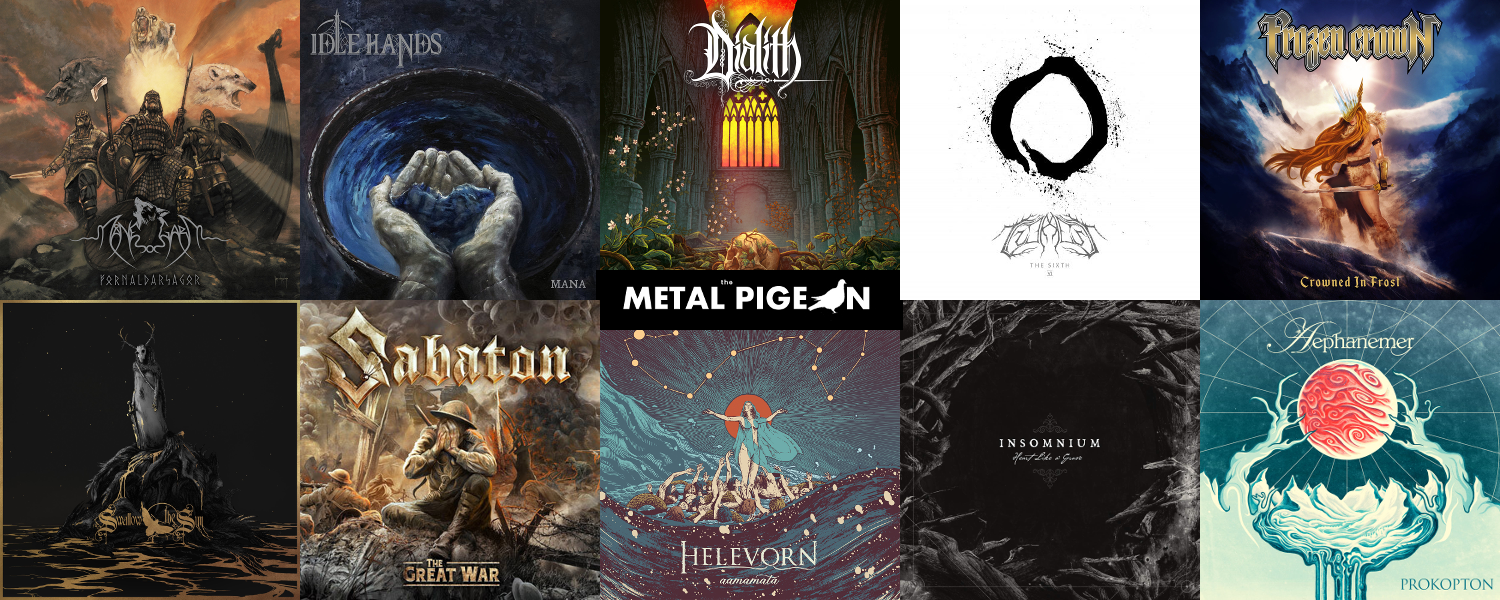






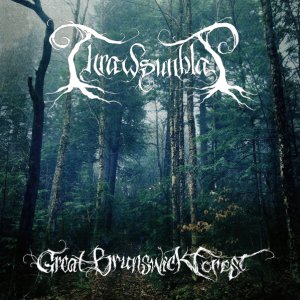


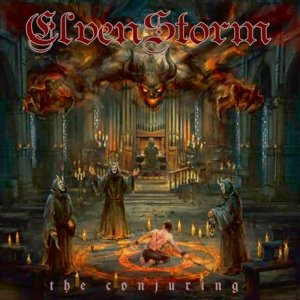


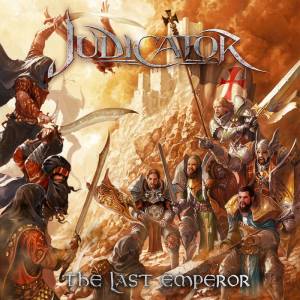




 1. Unleash the Archers – Apex:
1. Unleash the Archers – Apex: 3. Sorcerer – Crowning of the Fire King:
3. Sorcerer – Crowning of the Fire King: 4. Cradle of Filth – Cryptoriana: The Seductiveness of Decay:
4. Cradle of Filth – Cryptoriana: The Seductiveness of Decay: 5. Myrkur – Mareridt:
5. Myrkur – Mareridt: 6. Vintersorg – Till fjälls, del II:
6. Vintersorg – Till fjälls, del II: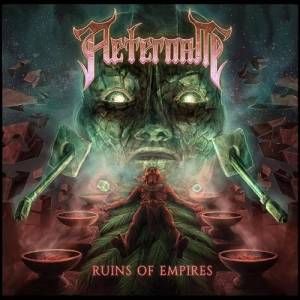 7. Aeternam – Ruins of Empires:
7. Aeternam – Ruins of Empires: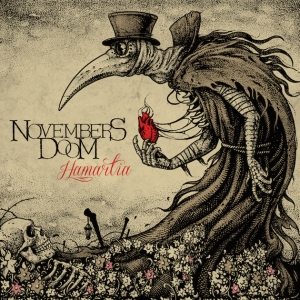 8. November’s Doom – Hamartia:
8. November’s Doom – Hamartia: 9. Evocation – The Shadow Archetype:
9. Evocation – The Shadow Archetype: 10. Bell Witch – Mirror Reaper:
10. Bell Witch – Mirror Reaper:















 2. Ghost Brigade – IV – One With the Storm:
2. Ghost Brigade – IV – One With the Storm: 3. Dawn of Destiny – F.E.A.R.:
3. Dawn of Destiny – F.E.A.R.:

 6. Primordial – Where Greater Men Have Fallen:
6. Primordial – Where Greater Men Have Fallen: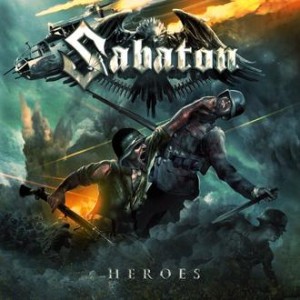 7. Sabaton – Heroes:
7. Sabaton – Heroes:
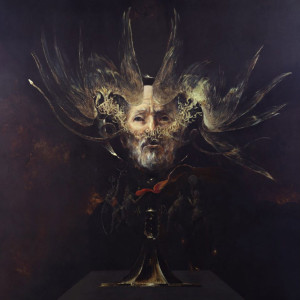 9. Behemoth – The Satanist:
9. Behemoth – The Satanist: 10. Noble Beast – Noble Beast:
10. Noble Beast – Noble Beast: